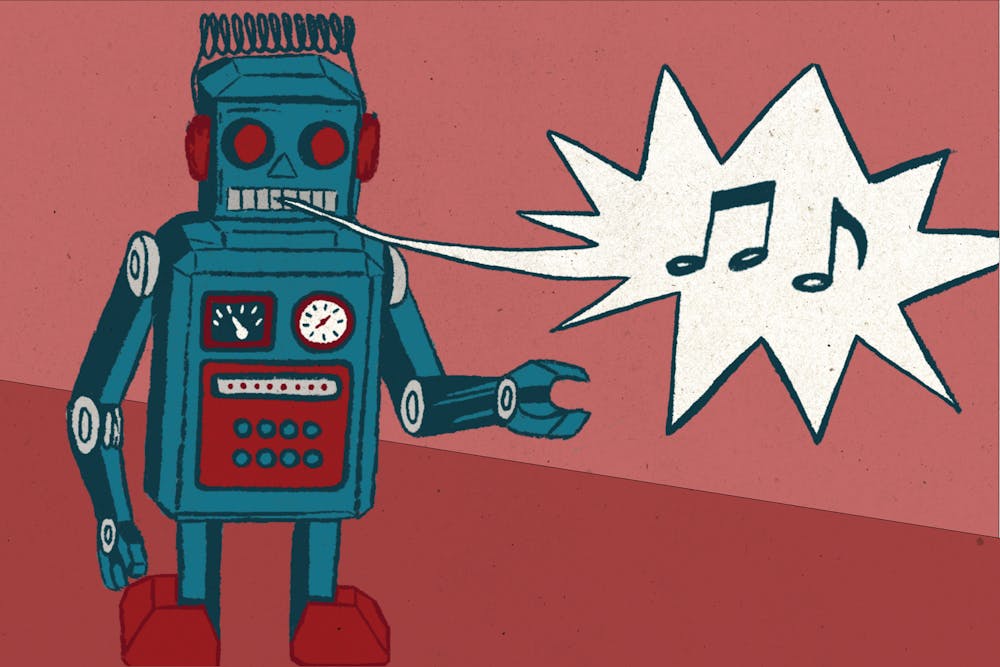On Nov. 2, the Beatles released a new song, six decades after their first album debuted. “Now and Then,” an originally unfinished demo recorded by John Lennon in the late 1970s, became a full-fledged track in the Beatles’ discography thanks to machine learning. That’s right — artificial intelligence just became the fifth member of the Beatles.
In 1994, Lennon’s widow Yoko Ono gave several unfinished demos to the remaining Beatles members, Ringo Starr, Paul McCartney and George Harrison. "Now and Then” was left unfinished because it required advanced technology to complete complicated audio isolation.
In 2021, film director Peter Jackson released the documentary series “The Beatles: Get Back,” which centered around the production of the 1970 Beatles album “Let it Be." The series used artificial intelligence to isolate sound from old videos, which then inspired Jackson to create MAL, a machine learning software that allows producers to split a soundtrack’s components into separate tracks. It was used to effectively isolate Lennon’s voice in the “Now and Then” demo.
The track includes Lennon’s original vocals, Harrison’s acoustic and electric guitar recorded in 1995, Starr’s more recently recorded drum section, along with McCartney’s bass, guitar and piano contributions.
But it’s not the same Beatles from 60 years ago. MAL cleans old vocals, but piecing together old vocal samples for a song by such a legendary band does not represent the full talent, emotion, and humanity of the Beatles, or any other group.
The cultural and historical context of the band’s rise is pivotal to fans’ emotional connection to the Beatles’ music, and a song created by only half of the band with alterations from AI is a disservice to the group’s legacy.
Beyond concerns about the creative legitimacy of AI, the production of the new song denies the two deceased Beatles members, John Lennon and George Harrison, the right to approve both their individual contributions and the track as a whole. Even the two living Beatles’ performance of and approval of the song cannot truly represent the group’s creative direction from half a century ago.
Just over a week after its release, “Now and Then” reached No. 1 on the UK’s Official Singles chart. It’s possible that AI could help legendary groups remain relevant and attract a new generation of listeners, but perhaps instead, we should be encouraging younger fans to listen to hit tracks that were written and produced by the band as a complete unit. Music should be shielded from the increased use of AI to protect the raw nature of bands’ original work.
AI poses a threat to the human expression behind music and even contemporary artists are suffering. In April, an anonymous creator named Ghostwriter created a fake duet using AI-generated voices, mimicking Drake and The Weeknd to release the song “Heart on my Sleeve.”



